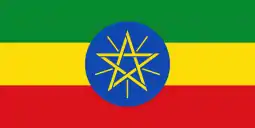International Conference on Learning Representations
The International Conference on Learning Representations (ICLR) is a machine learning conference held every spring. The conference includes invited talks as well as oral and poster presentations of refereed papers. Since its inception in 2013, ICLR has employed an open peer review process to referee paper submissions (based on models proposed by Yann LeCun[1]). In 2019, there were 1591 paper submissions, of which 500 accepted with poster presentations (31%) and 24 with oral presentations (1.5%).[2]. In 2021, there were 2997 paper submissions, of which 860 were accepted (29%).[3]. Along with ICML and NeurIPS, ICLR is one of the three major machine learning and artificial intelligence conferences, and has the highest impact of the three.[4]
| International Conference on Learning Representations | |
|---|---|
| Abbreviation | ICLR |
| Discipline | Machine learning, artificial intelligence, feature learning |
| Publication details | |
| History | 2013–present |
| Frequency | Annual |
| yes (on openreview.net) | |
| Website | https://iclr.cc/ |
Locations
 ICLR 2021, Vienna, Austria (virtual conference)
ICLR 2021, Vienna, Austria (virtual conference) ICLR 2020, Addis Ababa, Ethiopia (virtual conference)[5][6]
ICLR 2020, Addis Ababa, Ethiopia (virtual conference)[5][6] ICLR 2019, New Orleans, Louisiana, United States
ICLR 2019, New Orleans, Louisiana, United States.svg.png.webp) ICLR 2018, Vancouver, Canada
ICLR 2018, Vancouver, Canada ICLR 2017, Toulon, France
ICLR 2017, Toulon, France ICLR 2016, San Juan, Puerto Rico, United States
ICLR 2016, San Juan, Puerto Rico, United States ICLR 2015, San Diego, California, United States
ICLR 2015, San Diego, California, United States.svg.png.webp) ICLR 2014, Banff National Park, Canada
ICLR 2014, Banff National Park, Canada ICLR 2013, Scottsdale, Arizona, United States
ICLR 2013, Scottsdale, Arizona, United States
References
- "Proposal for A New Publishing Model in Computer Science". yann.lecun.com.
- "ICLR 2019 Conference". openreview.net.
- "ICLR 2021 Conference". openreview.net.
- "Artificial Intelligence - Google Scholar Metrics". web.archive.org. 2020-10-07. Retrieved 2020-10-07.
- "Major AI conference is moving to Africa in 2020 due to visa issues". 19 November 2018.
- "Major AI conference is moving to Africa in 2020 due to visa issues". VentureBeat. 2018-11-19. Retrieved 2020-10-07.
External links
This article is issued from Wikipedia. The text is licensed under Creative Commons - Attribution - Sharealike. Additional terms may apply for the media files.